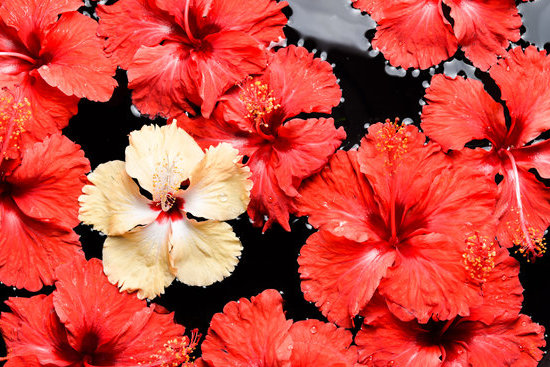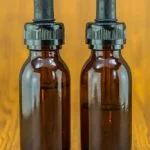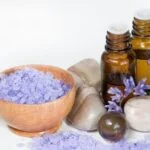Aromatherapy has gained popularity in recent years as a natural approach to promoting overall well-being and relaxation. The use of essential oils extracted from plants is believed to have therapeutic benefits when inhaled or applied to the skin. One common question that arises is, “Is aromatherapy safe to breathe?” Many people turn to this practice for its potential healing properties, but concerns about safety often linger.
Aromatherapy involves the use of plant extracts to treat various conditions, both physical and emotional. Essential oils are typically used in aromatherapy to promote relaxation, improve mood, reduce stress, and alleviate symptoms of certain ailments. Inhalation is one of the primary methods of delivering these aromatic compounds into the body, whether through direct inhalation or through diffusion in the air.
While aromatherapy can be beneficial when practiced safely, there are potential risks and side effects associated with inhaling essential oils. Some individuals may experience allergic reactions or skin irritation when using certain oils.
It is important to understand how aromatherapy works on the body and mind, as well as knowing the proper ways to use it for optimal benefits while minimizing risks. By being informed about safety concerns and following recommended guidelines, it is possible to enjoy the benefits of aromatherapy without compromising one’s health.
Understanding the Essence of Aromatherapy
Aromatherapy is a holistic healing treatment that uses natural plant extracts to promote health and well-being. The use of essential oils in aromatherapy can have a wide range of benefits, including reducing stress, improving sleep quality, boosting mood, and easing physical ailments. These essential oils are highly concentrated and have unique properties that interact with the body when inhaled or applied topically.
When it comes to understanding the essence of aromatherapy, it is important to recognize the power of scent on our emotions and physical state. Essential oils work through the olfactory system by stimulating the nerves in the nasal passages, which then send signals to the brain’s limbic system – the area responsible for emotions, memories, and behavior. This direct connection between smell and brain function is what makes aromatherapy such a powerful tool for relaxation and healing.
Key Points
- Aromatherapy harnesses the therapeutic benefits of essential oils extracted from plants.
- The olfactory system plays a crucial role in how aromatherapy affects our emotions and well-being.
- Essential oils can have a profound impact on mood, stress levels, sleep quality, and overall health.
As we delve deeper into the essence of aromatherapy, it becomes evident that this ancient practice has stood the test of time due to its undeniable efficacy in promoting wellness. Whether you choose to diffuse essential oils in your living space, add them to a bath, or apply them topically with carrier oils, incorporating aromatherapy into your daily routine can have transformative effects on both mind and body.
However, before diving headfirst into this fragrant world, it is crucial to address any safety concerns regarding inhaling essential oils – an aspect we will explore further in the following section.
How Aromatherapy Works on the Body and Mind
Aromatherapy works on the body and mind through the use of essential oils extracted from various plants. These essential oils contain aromatic compounds that can have a range of effects on an individual’s physical and emotional well-being. When inhaled, these aromatic compounds can interact with the limbic system in the brain, which is responsible for emotions, memories, and arousal. This interaction can lead to mood improvement, stress relief, and relaxation.
One key aspect of how aromatherapy works is through the olfactory system. When essential oils are inhaled, odor molecules travel through the nostrils and reach the olfactory epithelium where they bind to olfactory receptors. These receptors then send signals to the brain’s limbic system and other areas involved in regulating physiological functions. This process can trigger responses such as reduced heart rate, lowered blood pressure, or even changes in hormone levels.
In addition to the psychological effects, aromatherapy also has physical benefits on the body. Some essential oils have antimicrobial properties that can help fight off infections when inhaled. Others may have anti-inflammatory or pain-relieving properties when used in aromatherapy practices like steam inhalation or diffusing. When used correctly and safely, aromatherapy can be a versatile tool for improving both mental and physical health.
| Aromatherapy Effects | Examples |
|---|---|
| Mood Improvement | Lavender oil for calming effect |
| Pain Relief | Peppermint oil for headaches |
| Antimicrobial Properties | Tea tree oil for fighting infections |
Different Methods of Aromatherapy Delivery (Inhalation, Topical, Etc)
Aromatherapy is a holistic healing treatment that uses natural plant extracts to promote health and well-being. One of the most common methods of administering essential oils in aromatherapy is through inhalation. Inhalation can be done in various ways to experience the therapeutic benefits of essential oils. Here are some different methods of aromatherapy delivery, including inhalation and topical applications:
- Inhalation: This method involves breathing in the aroma of essential oils either directly from the bottle, using a diffuser or humidifier, or adding a few drops to a bowl of hot water for steam inhalation. Inhaling essential oils allows them to enter the body through the respiratory system, where they can have an immediate impact on mood and emotions.
- Topical Application: Essential oils can also be applied to the skin through massage, baths, compresses, or skincare products. When applied topically, the oils are absorbed through the skin and into the bloodstream, where they can provide localized or systemic effects depending on their properties.
- Aromatherapy Jewelry: Another popular method of aromatherapy delivery is through wearable items like diffuser necklaces or bracelets. These accessories allow you to enjoy the benefits of essential oils throughout the day by carrying their scent with you wherever you go.
While inhaling essential oils through aromatherapy is generally considered safe and effective for most people when used properly, it is important to be aware of potential risks and safety concerns associated with this method. It is crucial to understand how aromatherapy works on both the body and mind before incorporating it into your wellness routine.
Safety Concerns
Aromatherapy, the practice of using essential oils for therapeutic purposes, is a popular holistic approach to promoting overall well-being. While it offers various benefits like stress relief, improved sleep, and relaxation, there are concerns regarding its safety when it comes to breathing in essential oils. Many people wonder, “Is aromatherapy safe to breathe?”.
Understanding the Risks
Inhaling essential oils may seem harmless, but there are potential risks associated with this method of aromatherapy delivery. Essential oils are highly concentrated extracts from plants that can be potent and overwhelming when inhaled directly. Some people may experience adverse reactions such as respiratory irritation, allergic reactions, or headaches when using certain essential oils without proper dilution.
Guidelines for Safe Inhalation
To ensure the safe use of aromatherapy for inhalation, it is essential to follow some guidelines. First and foremost, always consult with a certified aromatherapist or healthcare provider before incorporating inhalation therapy into your routine. They can provide guidance on which essential oils are safe for inhalation and how to properly dilute them for use.
Additionally, avoid direct inhalation from the bottle or diffuser – instead, opt for indirect methods like using a room diffuser or adding a few drops of oil to a bowl of hot water for steam inhalation. Lastly, if you experience any discomfort or negative effects while inhaling essential oils, stop immediately and seek medical advice.
Potential Risks and Side Effects of Inhaling Essential Oils
Effects of Inhaling Essential Oils
When it comes to inhaling essential oils for aromatherapy, there are certain risks and possible side effects that individuals should be aware of. While essential oils are natural substances extracted from plants, they are potent and concentrated, which means that improper usage or overexposure can lead to adverse reactions.
Some common side effects of inhaling essential oils include headaches, dizziness, nausea, and respiratory issues. It is essential to remember that everyone reacts differently to various oils, so it is crucial to start with small doses and observe how your body responds.
Potential Risks of Aromatherapy Inhalation
One of the potential risks of inhaling essential oils during aromatherapy is allergic reactions. Some individuals may have sensitivities or allergies to specific oils, which can trigger skin irritations or respiratory problems when inhaled. Another risk is the possibility of irritation or damage to mucous membranes in the nose, throat, or lungs if the oils are used incorrectly or in high concentrations.
Additionally, some essential oils can interact with medications or exacerbate existing health conditions in certain individuals. Therefore, it is vital to consult with a healthcare professional before incorporating aromatherapy into your wellness routine, especially if you have underlying health concerns.
Precautions for Safe Inhalation of Essential Oils
To minimize the risks associated with inhaling essential oils for aromatherapy purposes, there are several precautions that individuals should follow. Firstly, always dilute essential oils before inhaling them to reduce their potency and minimize the risk of adverse reactions. It is also recommended to use a high-quality diffuser specifically designed for aromatherapy inhalation to control the dispersal of the oil molecules effectively.
Furthermore, pay attention to proper ventilation in the room where you are diffusing essential oils and avoid prolonged exposure to concentrated vapors. By taking these precautions and being mindful of your body’s responses, you can safely enjoy the benefits of aromatherapy through inhalation without compromising your well-being.
Tips for Safely Using Aromatherapy for Inhalation
Aromatherapy is generally considered safe when used appropriately, including inhalation of essential oils. However, there are some important safety guidelines to keep in mind before incorporating aromatherapy into your routine. One key consideration is the quality of the essential oils being used.
It is crucial to ensure that you are using pure, high-quality essential oils from reputable sources to minimize the risk of adverse effects. Additionally, it is essential to properly dilute essential oils before inhaling them, especially through methods like diffusion or steam inhalation.
Furthermore, it is recommended to start slow and cautious when beginning with aromatherapy for inhalation. Some individuals may be more sensitive to certain essential oils than others, so it is wise to test a small amount first and observe any reactions before proceeding with regular use. In addition, pregnant women, individuals with underlying health conditions, or those taking medications should consult with a healthcare provider before using aromatherapy for inhalation to ensure its safety and suitability for their specific situation.
Proper ventilation is also important when practicing aromatherapy through inhalation. Ensure that the room or space where you are diffusing essential oils is well-ventilated to prevent overpowering scents or potential respiratory irritation. Lastly, remember that aromatherapy should complement other wellness practices and not replace professional medical advice or treatment when needed. With these tips in mind, safely using aromatherapy for inhalation can be a enjoyable and beneficial experience for promoting relaxation and overall well-being.
| Aromatherapy Safety Tips | Details |
|---|---|
| Use high-quality essential oils | Ensure they are pure and from reputable sources |
| Start with a small amount | Test for sensitivity before regular use |
| Consult healthcare provider | Especially if pregnant or have underlying health issues |
Conclusion
In conclusion, aromatherapy can be a safe and effective way to promote relaxation, improve mood, and alleviate certain symptoms when used properly. While there may be some concerns about the safety of breathing in essential oils, when done correctly and in moderation, aromatherapy can provide numerous benefits for both the body and mind.
It is important to consider the quality of essential oils being used, as well as any potential allergies or sensitivities before incorporating aromatherapy into your daily routine. Consulting with a qualified healthcare professional or certified aromatherapist can help ensure that you are using essential oils safely and effectively for inhalation.
Ultimately, the safety of aromatherapy for breathing in comes down to proper usage and understanding individual needs. By following recommended guidelines, being mindful of any potential risks or side effects, and listening to your body’s reactions, you can enjoy the benefits of aromatherapy while minimizing any possible negative effects. So, remember to approach aromatherapy with caution, do your research, and enjoy the soothing benefits it has to offer.
Frequently Asked Questions
Can Essential Oils Be Harmful if Inhaled?
Essential oils can be harmful if inhaled in excessive amounts or if used improperly. Some people may experience respiratory irritation, allergic reactions, or adverse effects on pets. It is essential to dilute essential oils properly and use them according to recommended guidelines.
How Long Is It Safe to Inhale Essential Oils?
The safety of inhaling essential oils depends on various factors such as the type of oil, concentration, duration of exposure, and individual sensitivity. In general, short-term inhalation of diluted essential oils for up to 30 minutes is considered safe for most people. Prolonged or intense inhalation should be avoided.
What Are the Side Effects of Aromatherapy?
While aromatherapy is generally considered safe when used appropriately, some individuals may experience side effects such as skin irritation, allergic reactions, headaches, dizziness, or nausea. Using high concentrations of certain essential oils or prolonged exposure can increase the risk of side effects. It is crucial to perform a patch test and follow proper dilution guidelines to minimize potential adverse reactions.

Are you looking for a natural way to improve your health and wellbeing?
If so, aromatherapy may be the answer for you.





